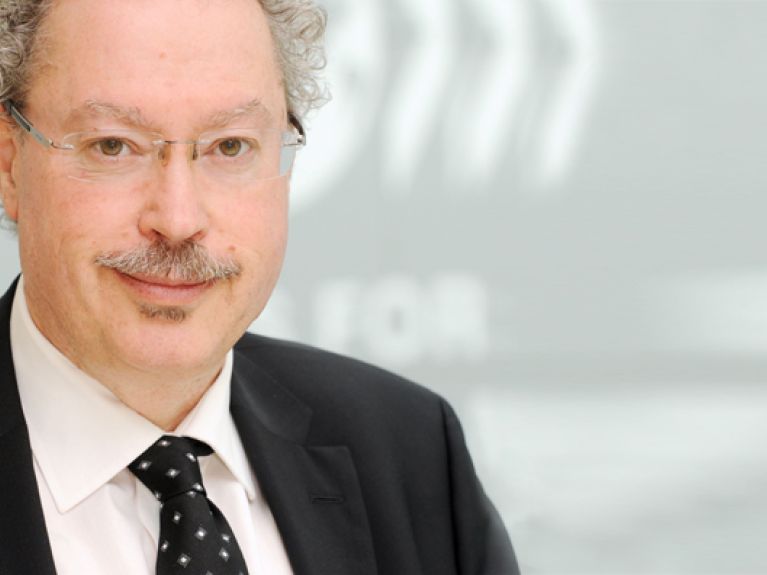Christian Kastrop, OECD
Ambassadors and senior German employees in international organizations present insights into their work in the deutschland.de series “Foreign posting”. Part 11: Christian Kastrop, director of the Policy Studies Branch at the OECD’s Economics Department in Paris.

You run the Policy Studies Branch at the OECD’s Economics Department. How would you describe your job? What exactly do you do?
The Policy Studies Branch is responsible for all matters of economic policy. From a Germany perspective, my responsibilities roughly correspond to those of the basic departments of an economics and finance ministry, though added to these are issues relating to monetary policy and social policy, as well as genuinely international matters such as trade, financial development and exchange rate trends. As the department’s director, it is my job to develop concepts and strategies for evidence-based policy advice using economic analyses, and then on this basis to get economic concepts and proposals to the point where they can be politically implemented.
The OECD has dedicated itself to the development of democracy and the market economy. What contribution does Germany make to this or to your organization?
The OECD is governed to a major extent by the Council, which is made up of ambassadors and in which Germany is very active. OECD German ambassador Jürgen Heimsoeth and his team play a very active role in terms of the focal content of the OECD’s work. Another important role, especially for my department, is played by the committees of the member countries, which are assigned to the specialist departments of the OECD. The economics ministry is in overall control here, though the financial section is also active in many areas.
What is a typical work day like for you? And what do you personally like about working in Paris?
It is certainly not a “nine-to-five” job, as my weekends are often at risk. In an international organization someone around the world is always awake and wanting to contact you. Travel plays an important role, as we also have to provide support to our member countries at the local level, but it is not as excessive as I had originally expected. Paris is of course an amazing place to work, and somewhere that many people like to take their holidays. The sights and the culture on offer here are phenomenal. The only problem is that we can hardly ever take advantage of it, at least not on weekdays.
What in your opinion makes it worth striving to achieve a position of responsibility in an international organization?
For me, the special appeal lies in the international nature of the work. Quite simply, it is a great opportunity to engage – on both a professional and personal level – with colleagues from many different countries. International organizations can illustrate how international cooperation on global problems is genuinely possible despite different cultures. This allows one to hope that such problems can be resolved after all despite certain setbacks.

